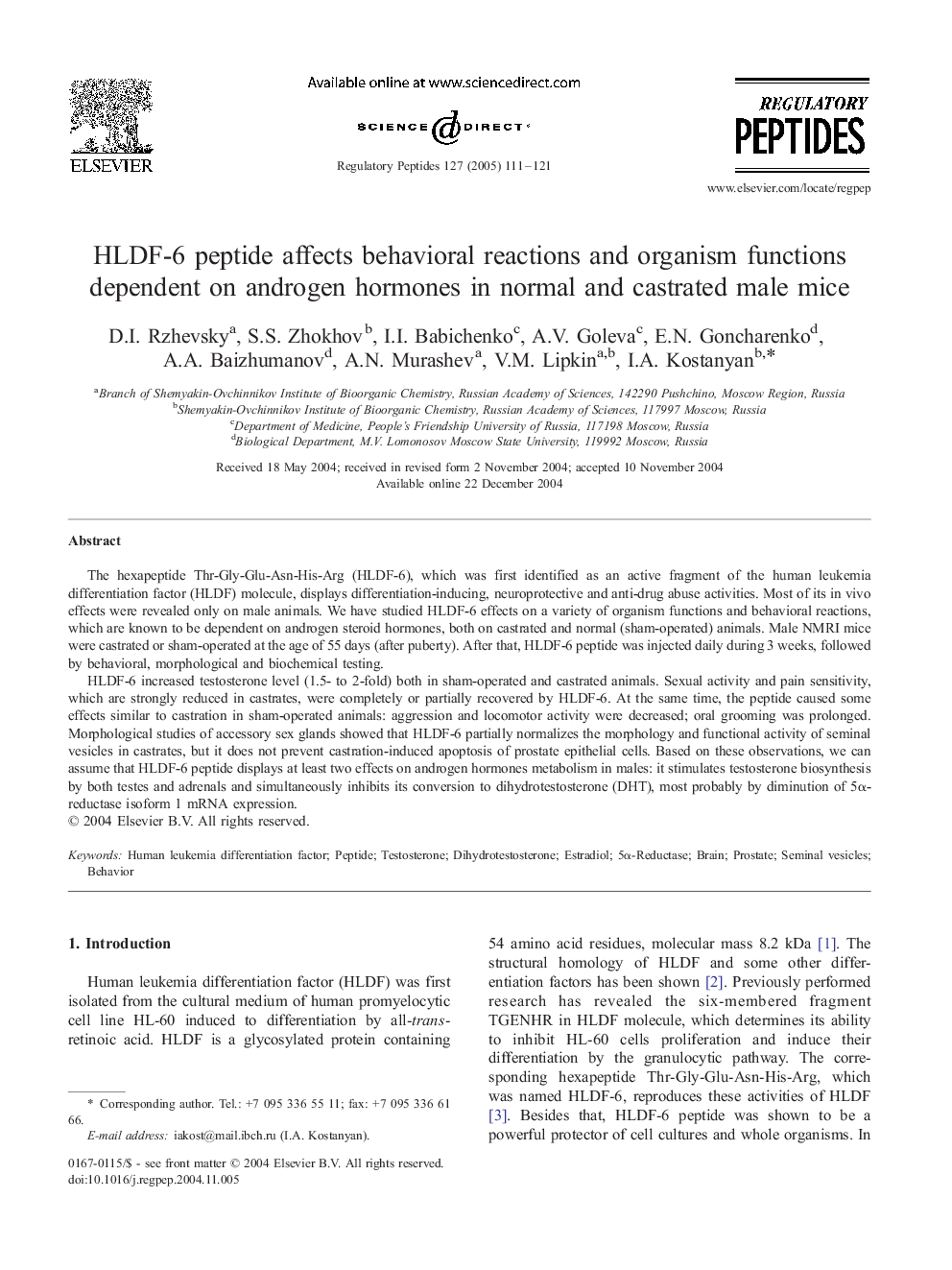| Article ID | Journal | Published Year | Pages | File Type |
|---|---|---|---|---|
| 9894448 | Regulatory Peptides | 2005 | 11 Pages |
Abstract
HLDF-6 increased testosterone level (1.5- to 2-fold) both in sham-operated and castrated animals. Sexual activity and pain sensitivity, which are strongly reduced in castrates, were completely or partially recovered by HLDF-6. At the same time, the peptide caused some effects similar to castration in sham-operated animals: aggression and locomotor activity were decreased; oral grooming was prolonged. Morphological studies of accessory sex glands showed that HLDF-6 partially normalizes the morphology and functional activity of seminal vesicles in castrates, but it does not prevent castration-induced apoptosis of prostate epithelial cells. Based on these observations, we can assume that HLDF-6 peptide displays at least two effects on androgen hormones metabolism in males: it stimulates testosterone biosynthesis by both testes and adrenals and simultaneously inhibits its conversion to dihydrotestosterone (DHT), most probably by diminution of 5α-reductase isoform 1 mRNA expression.
Keywords
Related Topics
Life Sciences
Biochemistry, Genetics and Molecular Biology
Biochemistry
Authors
D.I. Rzhevsky, S.S. Zhokhov, I.I. Babichenko, A.V. Goleva, E.N. Goncharenko, A.A. Baizhumanov, A.N. Murashev, V.M. Lipkin, I.A. Kostanyan,
